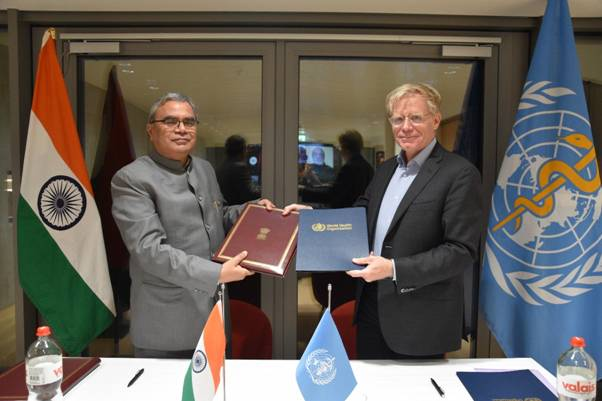Free Courses Sale ends Soon, Get It Now


Free Courses Sale ends Soon, Get It Now



Copyright infringement not intended
Picture Courtesy: PIB
Context: The Collaboration between the Ministry of Ayush and the World Health Organization (WHO) marks a significant stride toward integrating Traditional and Complementary Medicine (T&CM) into global healthcare.
Key aspects and objectives
Agreement Objectives
Specific Focus Areas
Impact and Expectations
International Commitment and Support
Conclusion
Must Read Articles:
75 Years Of World Health Organisation: https://www.iasgyan.in/daily-current-affairs/75-years-of-world-health-organisation
WHO Global Summit on Traditional Medicine: https://www.iasgyan.in/daily-current-affairs/who-global-summit-on-traditional-medicine
WHO Global Summit on Traditional Medicine: https://www.iasgyan.in/daily-current-affairs/who-global-summit-on-traditional-medicine
|
PRACTICE QUESTION Q. How can Traditional and Complementary Medicine be effectively integrated into global healthcare to improve patient well-being? What challenges exist in harmonizing these practices with conventional medicine, and what strategies can ensure a balanced and culturally sensitive approach to healthcare worldwide? |
© 2024 iasgyan. All right reserved